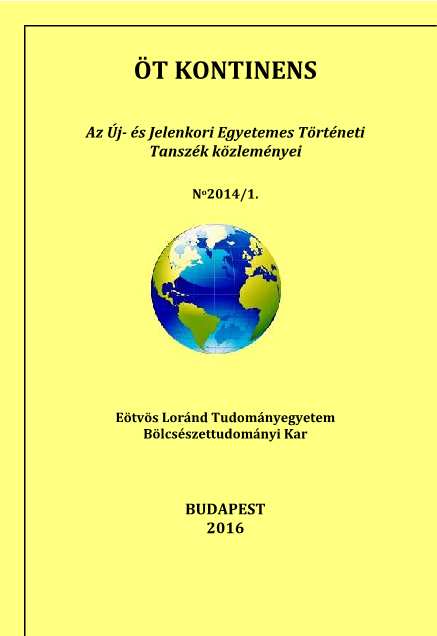Boer Communities and the British Colonial Policy, 1846-1881. Differences between the Boer Republics from the Aspect of the British Colonial Policy
Boer Communities and the British Colonial Policy, 1846-1881. Differences between the Boer Republics from the Aspect of the British Colonial Policy
Author(s): Gábor Szabó-ZsoldosSubject(s): 19th Century
Published by: Eötvös Loránd Tudományegyetem, Új-és Jelenkori Egyetemes Történeti Tanszék
Keywords: Boer republics; Orange Free State; South African Republic; Sir George Grey; 3rd Earl Grey; 4th Earl Of Carnarvon; Colonial Office; constitution; Volksraad; Cape Colony
Summary/Abstract: The political, economic and above all ethnical heterogeneity had crucial impact on the history of Southern Africa. Although vital tensions existed between the three main ethnical blocks (Africans, Boers, British), essential conflicts emerged between the subgroups. Especially the relation of the different Boer communities and republics (Orange Free State, South African Republic) was hectic. Despite the fact that Boers had same origin, spoke the same language, shared common traditions and followed similar religious views, in the field of politics and denominational issues, serious differences rose chiefly between the Orange Free State and the South African Republic. This diversity among the Boers influenced Great Britain’s South African colonial policy as well as the Colonial Office attempted to take advantage of the said circumstances.
Journal: ÖT KONTINENS
- Issue Year: 2014
- Issue No: 1
- Page Range: 83-100
- Page Count: 18
- Language: English

